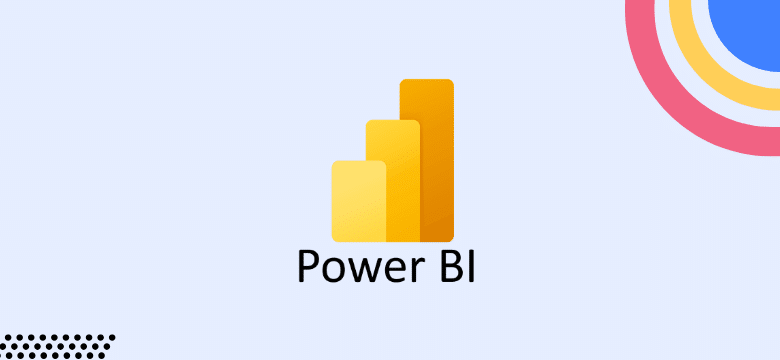In recent years, technology has transformed numerous industries and healthcare is no exception. The integration of advanced technologies into the healthcare sector, commonly referred to as “health tech,” is revolutionizing the way medical services are delivered, patient care is managed and overall well-being is approached. Healthtech includes a wide range of innovative solutions, from digital platforms and wearable devices to artificial intelligence (AI) and data analytics, all aimed at enhancing the quality, accessibility, and efficiency of healthcare services.
1) Unveiling the World of Healthtech
Healthtech is a broad spectrum of technologies designed to improve various aspects of healthcare delivery, diagnosis, treatment, and patient engagement. It encompasses multiple solutions, each addressing specific challenges and needs within the healthcare ecosystem. Some key categories of health technology include:
a) Electronic Health Records (EHRs):
Digital platforms enable the secure and efficient storage and management of patient medical records, which help streamline data accessibility and facilitate seamless information sharing among healthcare providers.
b) Telehealth and Virtual Care:
Remote healthcare delivery models that leverage video conferencing, mobile apps, and other technologies to connect patients with healthcare professionals, enabling convenient access to medical consultations and follow-up care, are particularly beneficial for those in remote or underserved areas.
c) Wearable Technology and Biosensors:
Devices such as smartwatches, fitness trackers, and glucose monitors that can monitor various health metrics and vital signs in real-time can help empower individuals to take a proactive approach to their well-being and enable healthcare professionals to monitor patients remotely.
d) Medical Imaging and Diagnostics:
Advanced imaging technologies like MRI, CT scans, and digital pathology solutions provide highly detailed and accurate visual representations of the body, aiding in early and precise diagnosis as well as treatment planning.
- Artificial Intelligence (AI) and Machine Learning: AI and machine learning applications have the potential to revolutionize various aspects of healthcare, from medical diagnosis and drug discovery to personalized medicine and predictive analytics using huge database from health providers.
- Big Data and Analytics: The utilization of vast healthcare data sets, including electronic health records, genomic data and patient-generated data from wearable devices, to extract valuable insights, improve decision-making processes and create predictive analytics for disease prevention and management.
You may like this: How Remote Patient Monitoring and AI Personalize Care
2) Why Healthtech Matters: Benefits for Patients and Providers
The adoption of health tech offers numerous benefits for both patients and healthcare providers, making it an increasingly crucial component of modern healthcare systems.
a) For patients, health tech:
- Improves access to care: Telehealth solutions expand access to medical services for individuals living in remote areas or those with limited mobility, ensuring they can receive timely and convenient care.
- Enhances patient engagement: By providing access to personal health data, educational resources and mobile apps, healthtech empowers patients to actively participate in managing their health and well-being.
- Facilitates personalized care: Advanced analytics and AI applications enable healthcare providers to tailor treatment plans to the unique needs and characteristics of each patient, leading to more effective and personalized care.
- Improves treatment outcomes: With the aid of advanced diagnostics, AI-driven decision support systems, and predictive analytics, healthcare professionals can make more accurate diagnoses and develop optimal treatment plans, ultimately leading to better patient outcomes.
- Enhances the patient experience: Online portals, mobile apps, and virtual care solutions provide patients with a more convenient and efficient healthcare experience, reducing wait times and enabling seamless communication with providers.
b) For healthcare providers, health tech:
- Increases efficiency: By streamlining workflows, automating administrative tasks, and enabling seamless data management through electronic health records (EHRs), healthcare solutions help healthcare organizations optimize their operations and reduce administrative burdens.
- Improves decision-making: Data-driven insights from EHRs, medical imaging, and analytics platforms empower healthcare professionals to make more informed clinical decisions, leading to better patient outcomes and cost-effective care delivery.
- Reduces costs: Through optimized resource allocation, improved workflow efficiency, and early intervention enabled by predictive analytics, healthcare solutions can potentially lower healthcare costs while maintaining or improving the quality of care.
- Enhances communication and collaboration: Secure online platforms and virtual care solutions facilitate efficient communication and collaboration among patients, healthcare providers, specialists, and other stakeholders, enabling coordinated care and improved continuity of treatment.
See more: Digital Transformation Use Cases in Healthcare
3) Challenges and Considerations in Healthtech Adoption
While the benefits of healthtech are numerous, its adoption and implementation are not without challenges. Some key considerations include:
- Data privacy and security concerns: The sensitive nature of health data necessitates robust cybersecurity measures and robust data governance frameworks to protect patient privacy and ensure compliance with regulations.
- Integration of new technologies with existing systems: Integrating new healthtech solutions with legacy healthcare systems and ensuring interoperability can be a complex and costly endeavor, requiring careful planning and execution.
- Accessibility and digital divide issues: Ensuring equitable access to healthtech solutions, particularly for underserved communities and individuals with limited digital literacy or resources, remains a significant challenge.
- The potential for job displacement: As certain healthcare tasks become automated or augmented by AI and other technologies, there is a risk of job displacement in certain healthcare sectors, necessitating workforce retraining and upskilling initiatives.
4) Conclusion
Healthtech represents a transformative force in the healthcare industry, offering numerous benefits for patients, healthcare providers, and the overall healthcare ecosystem. By leveraging cutting-edge technologies such as electronic health records, telehealth, wearable devices, medical imaging, AI and big data analytics, healthtech solutions have the potential to improve access to care, enhance patient engagement, facilitate personalized medicine, and optimize healthcare delivery.
If you’re looking to stay ahead of the curve and leverage the power of health technology for your healthcare organization, consider partnering with ITC Group. Contact us today to explore how we can help you with software development services that help to navigate the healthtech revolution and unlock new levels of operational excellence and patient satisfaction.








